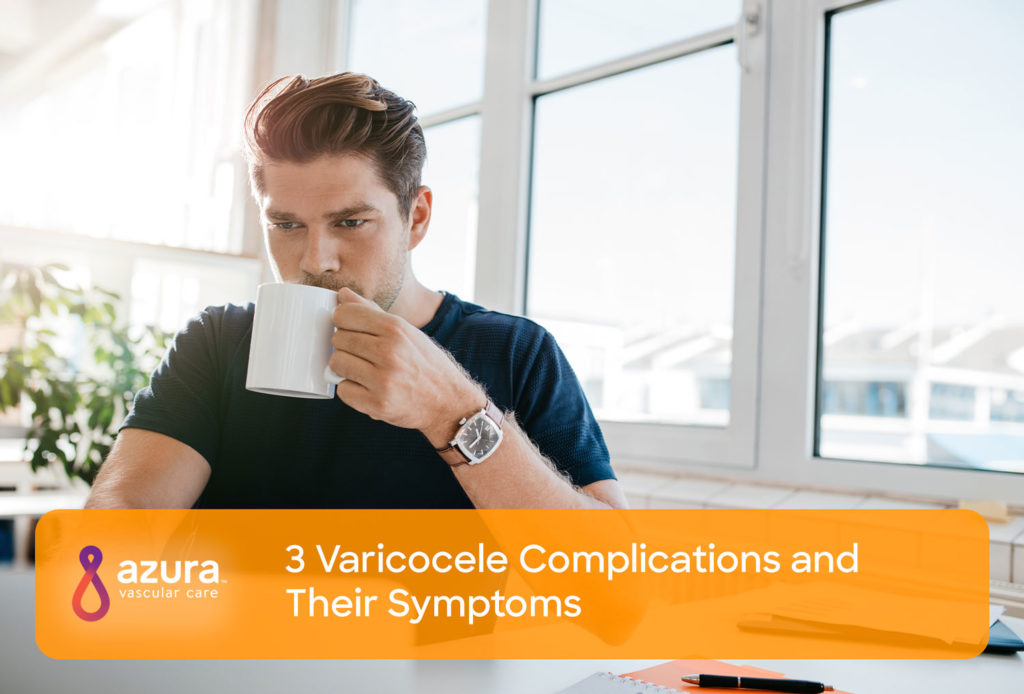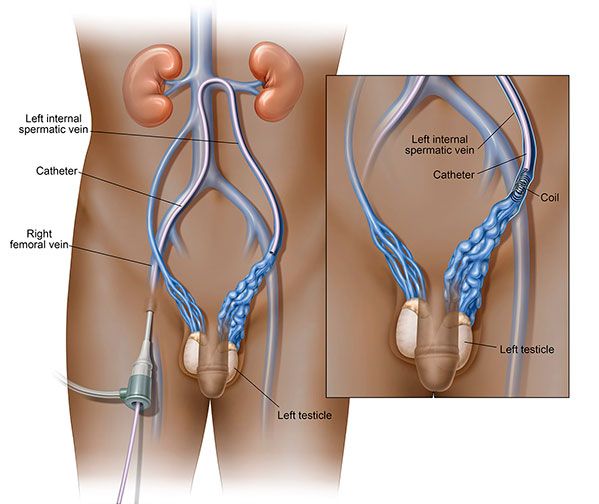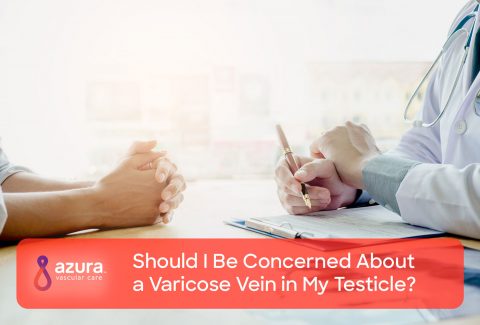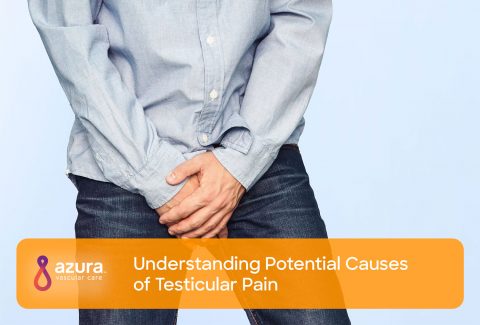
By now, you may know that you have a varicocele, which is a varicose vein in the scrotum. Unless you’ve done your research (What is a varicocele?) or spoken with your physician, you may not know that there are complications resulting from varicoceles. Without treatment, these varicocele complications can have long-term effects on infertility and testosterone levels and may cause testicular atrophy.
You may not be aware that up to 85% of men with a varicocele have no symptoms.i Having no symptoms doesn’t mean you will not experience varicocele related complications. A better understanding of varicocele complications may motivate you to seek medical advice from your physician and then take action to find the right treatment for you.
Varicocele Complications
There are three major types of varicocele complications men may experience:
- Infertility or low fertility
- Low testosterone
- A shrinking testicle, also called testicular atrophy
Let’s look more in-depth at each of these varicocele complications.
1. Infertility or Low Fertility
Doctors now believe infertility or low fertility can be one of the varicocele related complications men may experience. Varicoceles have been found to cause problems for men wanting to father a child. In fact, four out of 10 men experiencing male factor infertility have a varicocele.i
In addition to not being able to get pregnant, infertility can also lead to psychological problems and issues in relationships. When some men hear that they could be the cause of infertility in their relationship, the news may often lead to:
- Low self-esteem
- Stigma
- Depression ii
2. Low Testosterone
Doctors believe a varicocele can cause low testosterone in some men. Testosterone is the primary male hormone produced in the testicles. When the testicles do not produce enough testosterone, men can experience a number of symptoms.
Varicocele symptoms caused by low testosterone production are numerous and include:
- Sexual dysfunction, or inability to get an erection

- Low libido, or sex drive
- Depressed mood
- Tiredness
- Lack of motivation
- Sleep problems
- Concentration issues
- Decreased ability to exercise
- Sudden sweating or flushed face
- Moodiness
- Decreased muscle massiii
3. Testicular Atrophy
A varicocele can damage the testicle to the point that it shrinks. Doctors aren’t exactly sure why a varicocele causes testicles to atrophy, but they think the pooling blood in the affected veins can increase pressure, in turn increasing exposure to toxins, which could result in damage to the testicle.
Treating Varicoceles
If you’re experiencing varicocele complications or symptoms of a varicocele, you might want to talk to your doctor. Varicocele treatment can:
- Return the blood flow to normal – out of the scrotum and back toward the heart
- Seal off, or block, any malfunctioning veins
- Relieve pain or discomfort
- Improve infertility by improving sperm quality and mobility
A minimally invasive procedure called varicocele embolization is just as effective as surgical ligation in improving fertility in men with varicoceles, according to the Society of Interventional Radiology.ii Varicocele embolization is usually performed on an outpatient basis by an interventional radiologist. During varicocele embolization, the interventional radiologist will make a small nick in your skin, typically in the groin area. They will then use some form of imaging to guide a small tube, called a catheter, into your varicocele.
Once the catheter has reached the blocked or narrowed veins, the interventional radiologist will insert small metal coils, called a vascular coil, through the catheter. The affected veins are closed off and blood flow is redirected through healthy veins, restoring proper blood flow and reducing pressure.
Preferred Treatment for Varicoceles
Of men with a varicocele who’ve undergone both embolization and surgical litigation, many favor varicocele embolization as a treatment option. After varicocele embolization, sperm counts can increase in as few as three months. Both procedures are 90% successful in treating varicoceles.ii
There are several advantages to having varicocele embolization versus surgery, including:
- The recovery time is faster
- You can get back to exercising earlier
- You can return to sexual activity sooner

Receiving a varicocele diagnosis can be life-changing, but there are very successful treatment options out there. If you’ve been diagnosed with a varicocele and it’s causing problems, including male factor infertility, you should make an appointment with your doctor.
For men hoping to avoid surgery, varicoceles can be treated through a minimally invasive technique known as varicocele embolization. To learn more about the procedure, speak with a vascular specialist and make the best decision for you.
Sources:
i Goldstein, M. (2012). Surgical management of male infertility. In: Wein, A., Kavoussi, L. R., Novick, A.D., Partin, A. W., and Peters, C. A. (editors). Campbell-Walsh Urology. Philadelphia: Elssevier Saunders
ii Harvard Mental Health Letter (2000). The psychological impact of infertility and its treatment. Retrieved from: http://www.health.harvard.edu/newsletter_article/The-psychological-impact-of-infertility-and-its-treatment
iii Mayo Clinic (2017) Varicoceles. Retrieved from: http://www.mayoclinic.org/diseases-conditions/varicocele/basics/treatment/con-20024164


